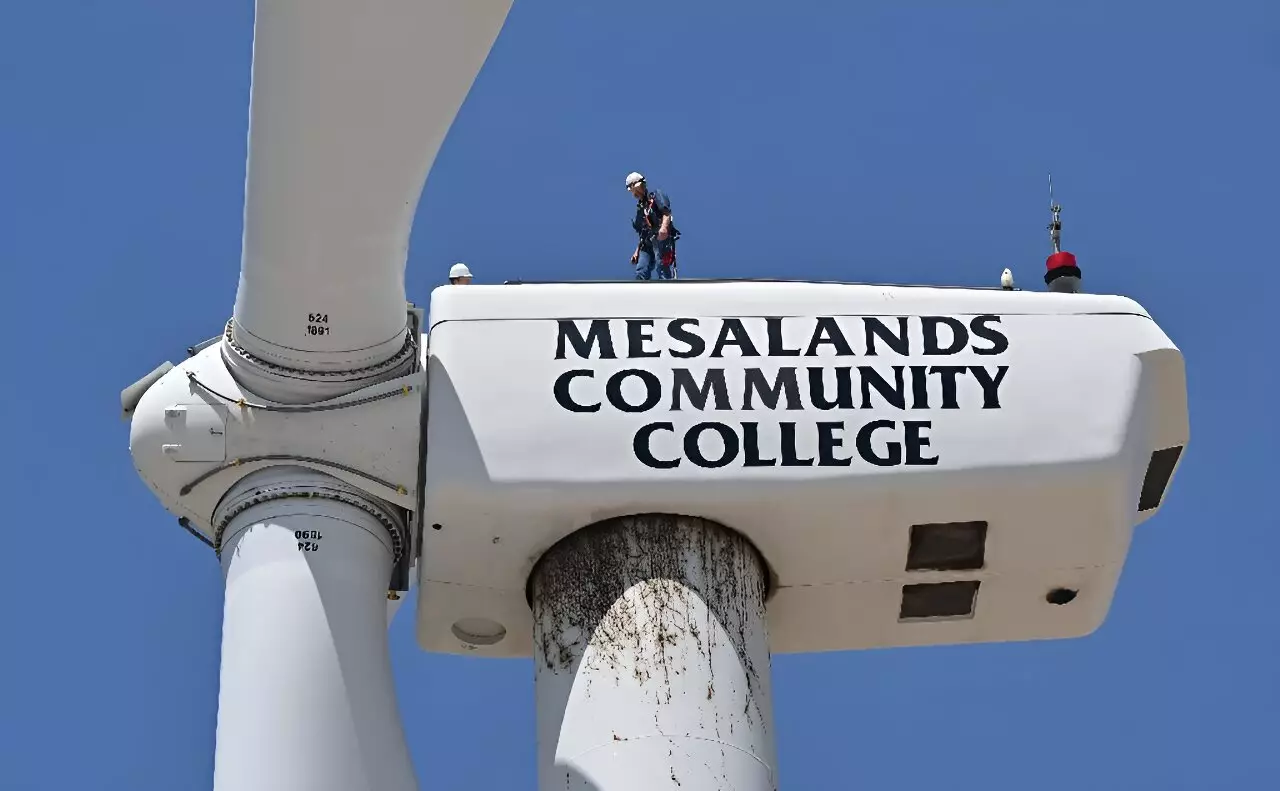Working as a wind turbine technician is not for the faint of heart. It requires climbing almost 300 feet above the ground, strapped to the roof of a wind turbine’s generator with a single safety harness. These technicians play a crucial role in maintaining the giant turbines that produce electricity to power millions of homes across the United States.
Located in New Mexico, Tucumcari is home to a wind turbine training facility at Mesalands Community College. Here, aspiring technicians learn the ins and outs of working on wind turbines, from practicing on the ground with replica generators to ascending to the turbine’s engine room high above the ground. The training is rigorous, and instructor Terrill Stowe warns students that it is not a career for those afraid of heights.
The wind industry in the United States has seen tremendous growth in recent years, with around 75,000 large turbines now in operation. This growth has been driven by falling technology costs, improved generating efficiency, and government incentives. President Joe Biden’s Inflation Reduction Act has also played a role in supporting the industry.
For many young people in rural areas like Tucumcari, working as a wind turbine technician offers the opportunity for a stable, well-paying career. A two-year degree can cost between $6,000 to $10,000 and opens the door to jobs that pay between $50,000 to $90,000 per year. This has attracted individuals like Nathaniel Alexander and Kevin Blea, who see the potential for good wages and job security in the industry.
Despite the clear benefits of the wind industry, political views in conservative regions like eastern New Mexico remain divided. While tax credits and government incentives have helped drive growth, not everyone in the community is enthusiastic about green politics. Some, like Alexander, are more focused on the practical aspects of the job rather than the environmental impact.
Working as a wind turbine technician comes with its own set of hazards. Technicians have to deal with extreme weather conditions, lightning strikes, and the constant motion of the turbines. Safety protocols have improved over the years, with climbing restricted in challenging weather conditions. Despite the risks, technicians like Blea find the work rewarding, especially when they get to enjoy the breathtaking views from the top of the turbine.
The wind industry is booming, and the demand for skilled technicians continues to grow. Training facilities like the one in Tucumcari play a vital role in preparing individuals for careers in this challenging but rewarding field. As the industry evolves and technology advances, the need for well-trained technicians will only increase, making this an exciting time to be part of the wind energy sector.


Leave a Reply